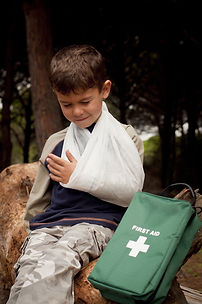
Life as a medical student
Some answers you will get used to giving out:
-
No, anatomy classes are not scary
-
No, I don’t know what specialty I want to do yet
-
Yes, I do actually have a life outside medicine
-
Yes, that is me dressed up as a carrot in that club photo
Medicine is a truly fulfilling and exciting career, and while it’s not an easy route, hardly anyone regrets choosing it in the end. There is massive diversity within the profession, which means there is a career niche for everyone. You get to experience all of the specialties during training, so some of us are quite glad that you can put off decisions for a while!
Putting the work in at school to get a place offers massive rewards. Medicine is really gratifying and humbling, and provides a career that is never boring! It has great job security and the good salary ensures that paying for university will not be a problem in the future.
The workload is perfectly manageable, even if you have to make occasional sacrifices. For the first few years, you can easily take part in a range of activities and societies (to a university level if you want) – chances are, if you have coped with schoolwork and volunteering, you’re organised enough to juggle these! During the last couple of years this is harder, but by that stage most of your non-medic friends have graduated and are working so you’re all focused on other things.
Your timetable will be more full than most students your age, but this actually turns out to be a plus. More contact time gives structure to your day, and having to keep up with regular classes ensures that you do the work over the course of the year and don’t have to cram come exam time. We found that this also makes the transition to self-directed learning at university easier than for other courses! Extra years at university give you more scope to try out new activities and societies as well.
Some of us worried that the course content would be insanely complex and hard, but in actual fact the main difference is the volume of knowledge, rather than the difficulty. The great thing is that medicine becomes easier to learn as time goes on, because all of the modules fit together to function as a whole body, which is then applied to clinical skills.
A few of us had the misconception that the course would be 9-5 from day one, and were surprised that this is not the case. It does vary between universities and demands more time as you progress through the years, but this really isn’t the reality for most of the first few years. Depending on where you live, it is possible to find time go home at weekends too.
Some of us had been a bit put off by the idea of anatomy classes, but they're not in some scary workshop with blood everywhere - it's a clean lab environment. The first lesson was quite surreal as it is a totally new experience, but by the end of the session you detach and become used to it. You start to respect the body as this amazing machine, and it is truly fascinating to see how humans are developed to function at their best.
Another transition that some students struggle with is no longer being top of the class. You will be among students of your ability, maybe for the first time, but you'll find that you develop each other - everyone has different strengths and it's just not possible to be the best at everything! On the flip side, you might expect everyone to be outstanding superhumans, but when you meet your classmates you will realise that you're just as good as them.
Clinical contact in the first couple of years varies a lot; some people want to be out on the wards straight away, while others would rather understand the academic side of things beforehand to get more out of their placements. A lot of medical schools advertise “early clinical contact”, but in reality (speaking to friends at other medical schools as well) we found that this is more to do with patient communication than hospital shadowing, as it isn’t really practical to have loads of students with limited knowledge on the wards. Some genuinely do offer this, but the best way to find out is by asking current students!
Medical students have a fantastic sense of camaraderie as we spend so much contact time together. A lot of your friends will end up being medics, so do make an effort to get to know other people in your halls and societies as well! Lots of universities run academic family schemes, where you are assigned older medical student “parents” to help you settle in and get the hang of things.
A number of universities have medic versions of societies as well, to let you take part in sports or hobbies whilst accommodating the heavier timetable. This is a great way to get to know classmates with similar interests to you (year groups are pretty big) and particularly to meet older students, who can give you invaluable advice on studies, choices available in the course and what lies ahead!
Some universities (medical schools tend to be Russell Group) have a focus on research. While the idea can seem daunting, this is really not scary. If applicable, you get a gentle introduction to methods and reading papers, but a lot of it is really common sense! These give you an insight into an area which you may not have come across otherwise, and shows how we have the power change things and improve healthcare. Some of us in the group are certain that we don’t want to be involved in research, but have still gained a lot of organisational and teamwork skills from projects.
Medical school also offers lots of opportunities that make your university experience truly unique. Electives are a period towards the end of the degree where you spend some time studying and practising outside of your medical school, either elsewhere in the UK or (mostly) abroad. You can make whatever you want of this 1-3 month period!
The bottom line is that this degree is a lot of fun and very sociable, both during and outside of studying. There is so much more to the university experience than work, and having other interests is necessary to relax and will make you a more well-rounded doctor.
Some charming stock photos of what you can make of this degree






